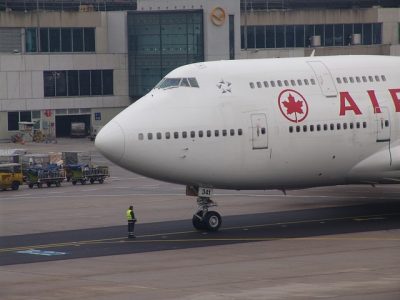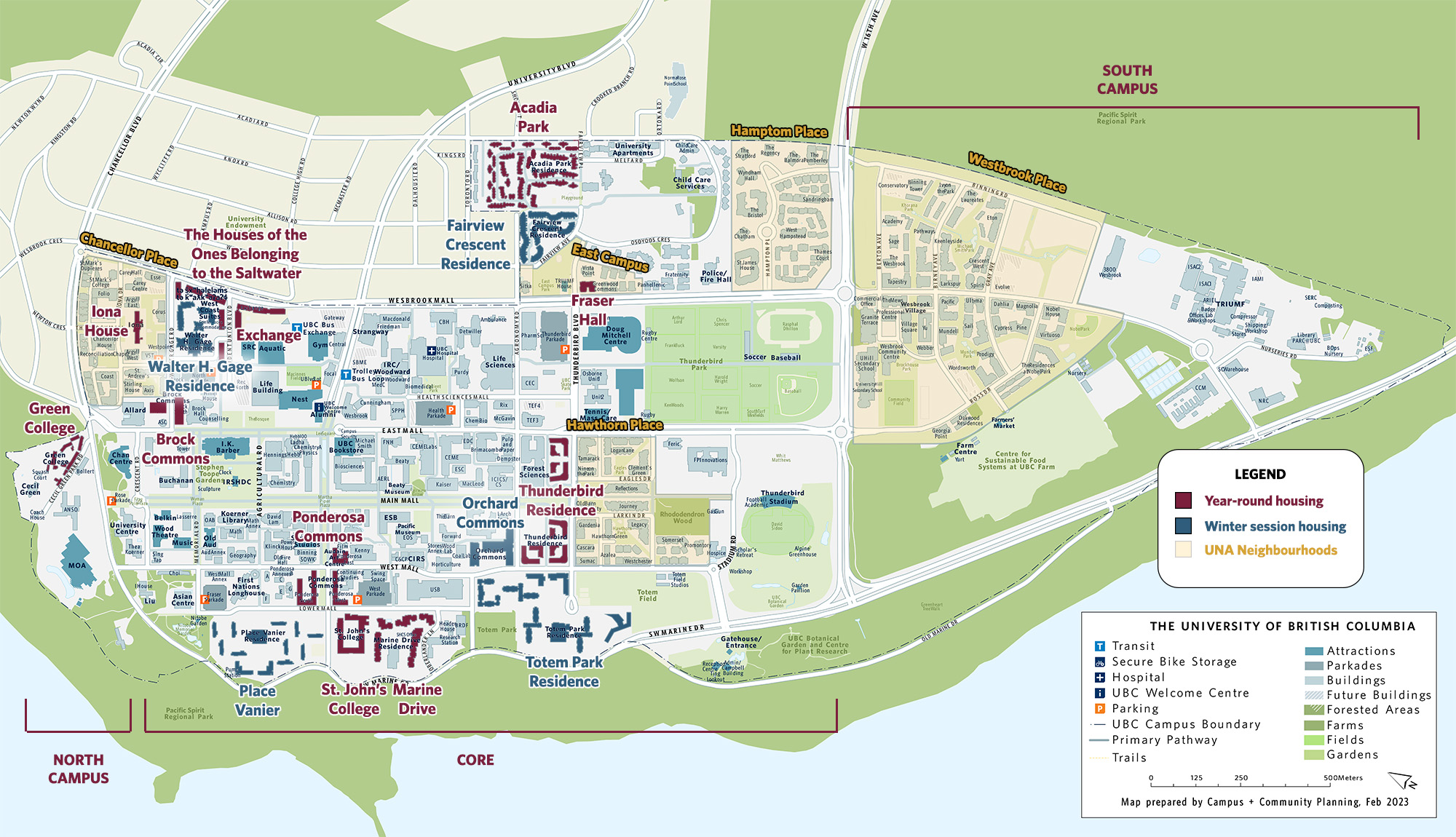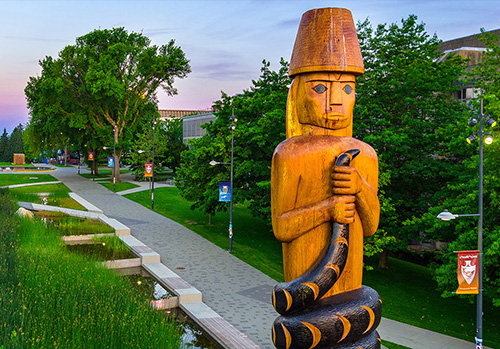
The Institute for the Oceans and Fisheries is located on the University of British Columbia’s Point Grey Campus. This is the unceded, ancestral, and traditional territory of the Musqueam people.
Learning at UBC means enjoying a superb campus in one of the planet’s truly spectacular cities – Vancouver. Vancouver is British Columbia’s cosmopolitan urban centre, providing a temperate climate, safe streets, a vibrant arts and cultural scene, and a welcoming, culturally diverse population.

Image by Christian Hänsel from Pixabay
International Students
Before you arrive in Canada please ensure that you have acquired all of the necessary immigration documents.
Apply for a study permit as soon as possible after your acceptance into UBC. The process can typically take up to four to six months. In addition, you must have the following documents upon your first arrival:
- Passport
- Letter of Introduction (issued by Canadian visa officers as approval of study permit application)
- Temporary Resident Visa or Electronic Travel Authorization (eTA), depending on country of citizenship
- UBC Letter of Acceptance
- Proof of funds
If you do not have the required documents, you will not be allowed to enter or study in Canada.
More information on immigration requirements
As a world-class city, accommodation is competitive and the cost of living is high. Before your arrival, please ensure that you have made adequate financial and accommodation arrangements.
On-campus accommodation

Neighborhoods and Residences/Colleges on-Campus (UBC C+CP, Feb 2023)
UBC offers various on-campus accommodation options
- Some residences are specifically for upper year students: Brock Commons, Exchange, Fairview Crescent, Fraser Hall, Iona House, Marine Drive, Ponderosa, tə šxʷhəleləm̓s tə k̓ʷaƛ̓kʷəʔaʔɬ (The Houses of the Ones Belonging to the Saltwater), Thunderbird, and Walter Gage.
- Two are specifically for graduate or postdoctoral students: Green College and St. John’s College
- And Acadia Park residence offers student family housing.
Places are allocated on a first-come, first served basis so apply early (they suggest before Feb 1).
Additional on-campus housing
Additional information is available:
Off-campus housing
There are several resources are available to help find off-campus housing:
- UBC Housing's Living off campus site
- AMS Rentsline
- Housing boards and notices around campus – Grad Student Centre, AMS Nest, UBC bus loop, departmental notice boards, etc.
- Vancouver Sun and Vancouver Is Awesome classified ads
- Students may ask the Graduate Program Officer or their supervisor to send a notice out to current students asking if anyone has a room to rent.
Note: Be careful when applying for housing through anonymous online services, (e.g., CraigsList). There have been attempts to defraud new UBC students. Always get someone to verify the legitimacy of a rental before paying anything.
Transit
The transit system in Vancouver is called Translink , and covers buses, Skytrains (subway) and the Seabus (Vancouver's one ferry, connecting to the North Shore). Translink also provides the Westcoast Express - a train service that connects Downtown Vancouver and points east (Coquitlam to Pitt Meadows to Mission City) on weekdays during morning and evening rush hours.
UBC student fees provide a monthly U-Pass . Through the U-Pass provided by UBC, students get unlimited access to bus, SeaBus, SkyTrain, and Canada Line transit services within Metro Vancouver, as well as discounts on West Coast Express, at a greatly reduced rate.
Your U-Pass can be loaded onto an adult-class Compass Card, (available from any SkyTrain Station and TransLink Fare Dealers including the UBC Bookstore). The U-Pass must be requested monthly, and may take up to 24 hours to activate; you can request your U-Pass starting on the 16th of every month.
Cycling
One of the fastest and most enjoyable ways to travel to, from and around the UBC campus is on two wheels. It’s convenient, inexpensive, and healthy.
Vancouver has many bicycle routes and maps that you can take advantage of.
 UBC is committed to supporting cyclists and is continuously upgrading and expanding on-road infrastructure, cycling resources and end-of-trip facilities for our campus community. Most buildings, including the Aquatic Ecosystem Research Lab (AERL), in which the IOF is located, offer places to store your bike while in class.
UBC is committed to supporting cyclists and is continuously upgrading and expanding on-road infrastructure, cycling resources and end-of-trip facilities for our campus community. Most buildings, including the Aquatic Ecosystem Research Lab (AERL), in which the IOF is located, offer places to store your bike while in class.
UBC's Campus and Community Planning offers more information about cycling at UBC , including indicated slow zones, HOPR bike share, and other cycling resources.
AMS also offers The Bike Kitchen , where you can learn to fix bicycles, share resources, and work together!
Walking
Vancouver is a wonderful place for walks, hikes, and strolls! Rated as one of the world's most walkable cities , creating a safe, accessible, and enjoyable walking environment is Vancouver’s top priority.
UBC has a number of walking paths , and AMS offers the Safewalk program for those walking on campus after dark.
Car Share & Car-pooling
There are a number of car share options in Vancouver , including Evo (offered by BCAA), and Modo Coop .
![]() PSST: Check out plaza near the UBC Bookstore at the beginning of the academic year - Evo usually has a table offering cut rates for students interested in joining.
PSST: Check out plaza near the UBC Bookstore at the beginning of the academic year - Evo usually has a table offering cut rates for students interested in joining.
And yes, Uber and Lyft are here.
Parking
Brought your own car? Yes, there is parking on campus, (though it is expensive and not always plentiful). Contact UBC Parking for more information on rates and locations.
Traditional First Nations territories

sʔi:ɬqəy̓ qeqən (double-headed serpent post)
Brent Sparrow Jr., Musqueam
We acknowledge that the UBC Point Grey campus is situated on the traditional, ancestral, and unceded territory of the Musqueam people. To learn more about the First Peoples in Canada and the city of Vancouver and its location on unceded Coast Salish territory, the First Peoples: A Guide for Newcomers to Vancouver is a great resource.
On UBC campus, you may want to visit the Indian Residential School History and Dialogue Centre and the First Nations House of Learning to learn more. Visit the Indigenous Portal for more information on resources, events and activities at UBC Vancouver
Multicultural city
Canada has two official languages, English and French. British Columbia is home to 34 distinct Indigenous languages and seven Indigenous language families, but the language most often spoken is English.
Vancouver is a multicultural city with a wealth of vibrant communities. You may hear many different languages spoken in different parts of the city, as many neighbourhoods have an international focus.
Food is often described as the language of a culture, and there are a multiplicity of choices both on-campus and off. These food choices range from the inexpensive to the ultra fancy; get out and enjoy the world via your taste-buds!
Here are some resources:
- 10 budget-friendly restaurants in Metro Vancouver , Vancouver Sun
- The 50 best cheap eats in Vancouver , Wanderlog
- The Best Cheap Eats under $10 according to Vancouver, , 604Now
- 21 bucket list eats you need to try in Vancouver at least once, , Daily Hive
- 38 Essential Vancouver restaurants, , Eater
There are also lots of festivals occurring in Vancouver; take advantage of those opportunities to learn more about various cultures (and eats).
Culture and Lifestyle
In addition to festivals, Vancouver - and UBC - has a thriving arts and culture scene.
On campus
Visit the Arts & Culture District's website for a comprehensive overview of events, news, cultural spaces, discounts, and volunteer opportunities. Also keep in mind that, as a UBC student, you can also get reduced rate (sometimes even FREE) access to the many museums and gardens located on campus.
- The Chan Centre is one of the world's great concert halls and shares its stages with performers from all over the world including musicians and actors from the UBC School of Music and Department of Theatre and Film.
- Beaty Biodiversity Museum , is home to Canada's largest blue whale skeleton and a collection of over 2 million specimens. The Beaty is located right next door to the IOF, and is free for students.
- The Museum of Anthropology has a world-renowned collection of First Nations art. They offer workshops that explore the art and techniques of making from different cultures. It's free for students and located on the north end of campus.
- Pacific Museum of the Earth is Vancouver's Earth Science outreach hub, with inspiring appreciation and wonder for Earth, the planets and our solar system. It's free for students and located across the Main Mall from IOF.
- Morris and Helen Belkin Art Gallery seeks to explore the ways in which the practice of contemporary art is in itself a form of research that produces knowledge.
- UBC Botanical Gardens , features an Asian Garden, Alpine Garden, Food Garden, Rainforest Garden, Shop and Garden Centre, and the Nitobe Memorial Garden . Feeling adventurous? Take the Greenheart Treewalk !
Off campus
So much to explore!
- Visit the City of Vancouver's Arts and culture website for details on activities, events, spaces, and opportunities in the city.
- Vancouver Art Gallery is located downtown. On Tuesday evenings, admission is by donation, and every Sunday, the Art Gallery offers free admission for children 12 and under with a paid adult.
- Things to do in Vancouver
Sports and recreation
UBC is home to great recreation venues and programs - most offering cut rates for students! Swim in the Aquatic Centre (you can even take scuba classes), take a fitness class, join a rowing team, go skating or play hockey! So much to do.
If you are more of a spectator, UBC's Thunderbird varsity teams provide some stellar teams for you to cheer on!
In Vancouver there are also a number of sports teams for you to follow:
- Vancouver Canucks , the city's National Hockey League (NHL) team
- BC Lions , a member club of the Canadian Football League (CFL)
- Vancouver Whitecaps football club is the city's professional soccer team
- Vancouver Canadians , the city’s minor league baseball team, play out at Nat Bailey Stadium
- and more...
For recreation, Vancouver has all the resources you could ever want! From beaches, to Stanley Park with its ever-blooming gardens, the Vancouver Aquarium and the Seawall; to the North Shore with its many ski, snowboard and other recreational venues. If you are up for a challenge, take the "Grouse Grind."
There is so much to explore !
